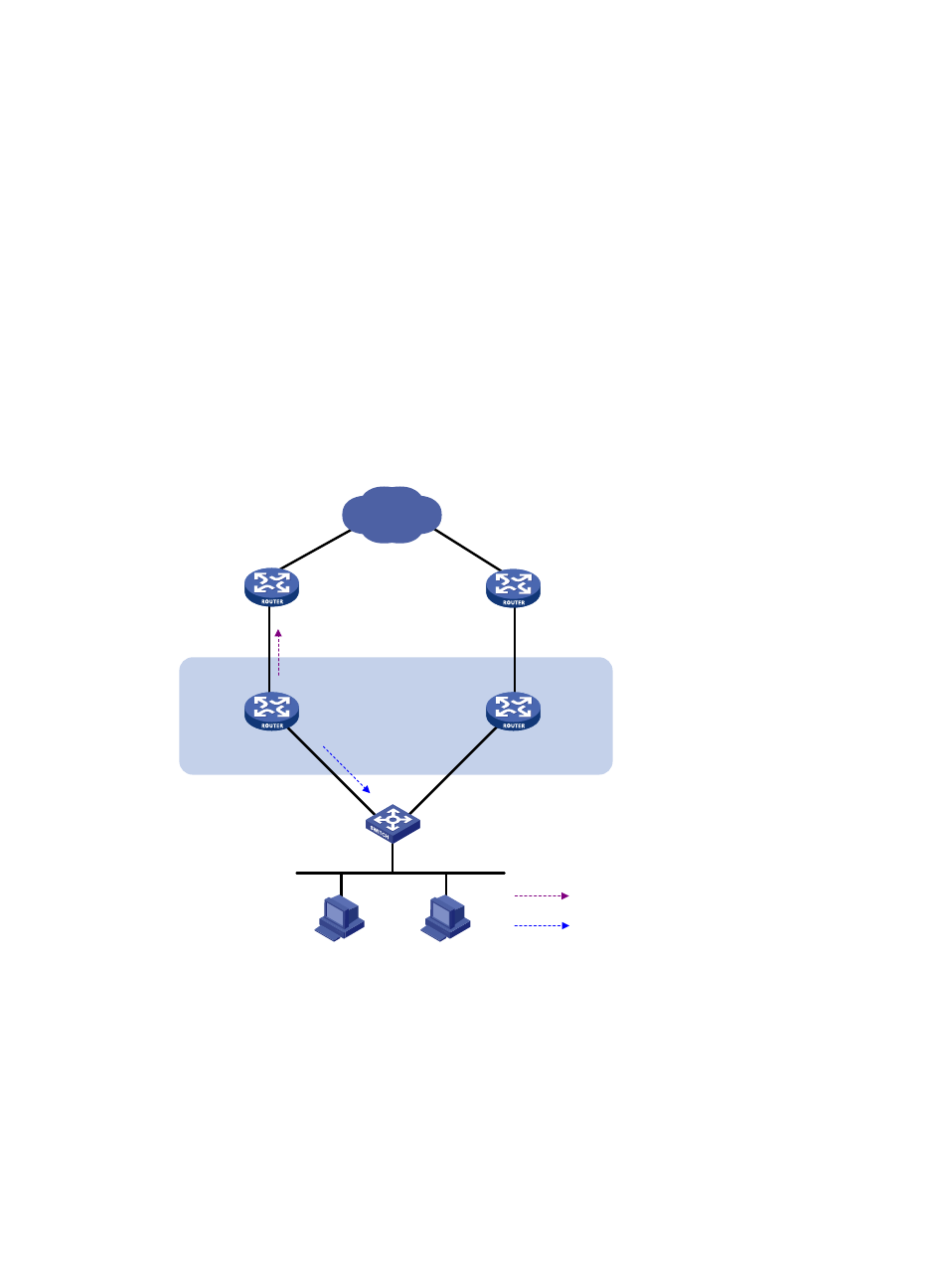Network requirements, Configuration procedure – H3C Technologies H3C MSR 50 User Manual
Page 47

39
Track Object : 1 State : Negative Switchover
The output shows that when BFD detects that Router A fails, it notifies VRRP through the Track module to
change the status of Router B to master without waiting for a period three times the advertisement interval.
This ensures that a backup can quickly preempt as the master.
Configuring BFD for the VRRP master to monitor the uplink
Network requirements
As shown in
, Router A and Router B belong to VRRP group 1, whose virtual IP address is
192.168.0.10.
The default gateway of the hosts in the LAN is 192.168.0.10.
When Router A operates correctly, hosts in the LAN access the external network through Router A. When
Router A detects that the uplink is down through BFD, it decreases its priority so that Router B can preempt
as the master, ensuring that the hosts in the LAN can access the external network through Router B.
Figure 13 Network diagram
Configuration procedure
1.
Configure BFD on Router A:
# Configure the source address of BFD echo packets as 10.10.10.10.
[RouterA] bfd echo-source-ip 10.10.10.10
2.
Create the track entry to associate with the BFD session on Router A:
# Create track entry 1 for the BFD session on Router A to check whether the uplink device with the
IP address 1.1.1.2 is reachable.
Internet
Master
uplink device
Backup
uplink device
Uplink
Virtual router
Virtual IP address:
192.168.0.10
Eth1/2
192.168.0.101/24
Eth1/2
192.168.0.102/24
Router A
Master
Router B
Backup
Eth1/1
1.1.1.1/24
Eth1/1
1.1.1.2/24
L2 switch
Uplink
VRRP packets
BFD probe packets
